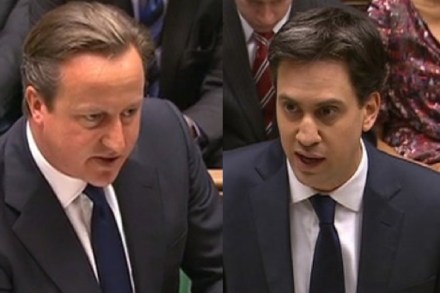Labour wants to stay in its NHS comfort zone and ignore immigration and the economy
PMQs taught us a number of things about Labour and the Conservatives. The first is that while Labour has a bumper economy week underway, it does not feel sufficiently confident to attack the Conservatives on this issue in an aggressive forum like PMQs. This is probably quite sensible, given the attack that Cameron launched towards the end of the session on Ed Balls. Looking very chipper indeed, the PM said: ‘What is my idea of fun? It is not hanging out with the Shadow Chancellor! That is my idea of fun! And so, I feel sorry for the leader of the Opposition because he has to hang out with him




















